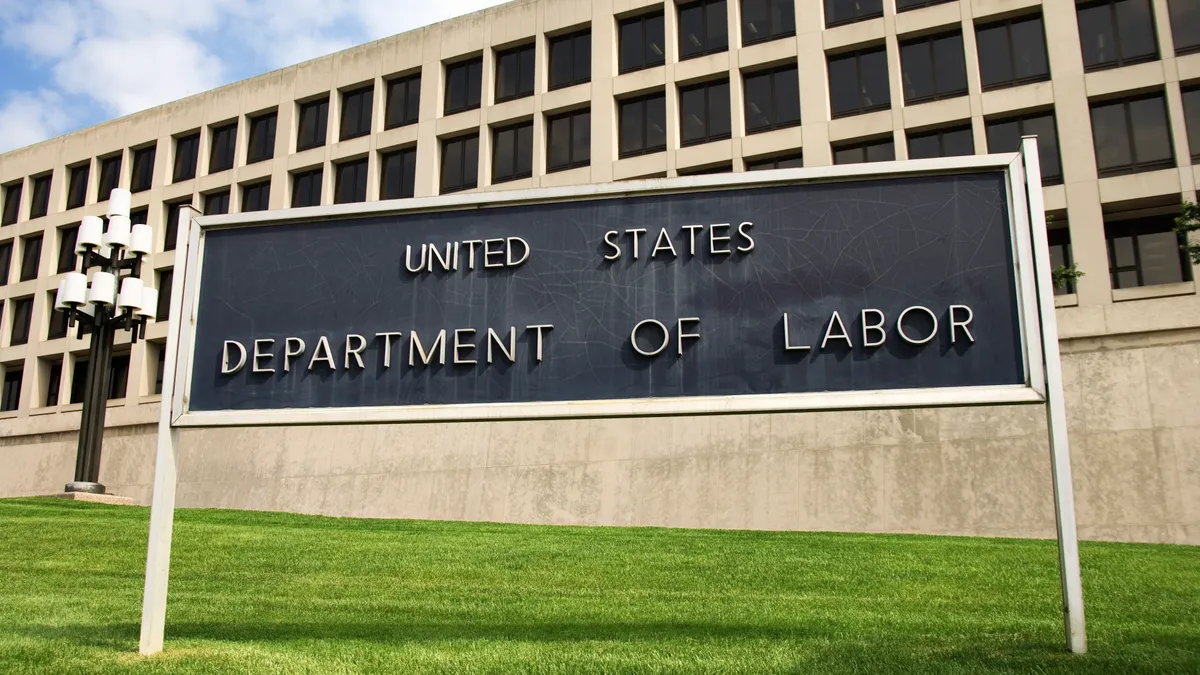Dive Brief:
- The U.S. Department of Labor is suing a full-service French bistro, Entre Nous, in Pasadena, California for withholding tips owed to its employees, according to a complaint filed on Dec. 28. The DOL seeks $250,000 in back wages and $250,000 in damages, as well as an injunction to prevent Entre Nous’ owners from violating the Fair Labor Standards Act in the future.
- The DOL alleges that Entre Nous’ owners deposited credit card tips directly into the restaurant’s accounts and stored cash tips under the POS before depositing them into the restaurant’s accounts. Entre Nous, the suit claims, did not pay workers all the money it owed them.
- During the DOL’s investigation, Entre Nous added a 20% service charge, which was still listed on the restaurant’s site as of Thursday. The suit says customers continued to tip and the company continued to use tips to cover unrelated business expenses during the investigation.
Dive Insight:
Entre Nous’ website describes the restaurant as a “no tipping establishment” and claims that its service charge “is used to fund all of our operations.”
The DOL said its investigation found that in a single week in late 2021, the restaurant’s customers left $12,512.07 in credit card tips and the business paid only $7,596 to its employees as tips, taking the rest for unrelated business expenses.
“Illegal practices by restaurant employers such as Entre Nous French Bistro in Pasadena hurt employees and also law-abiding employers who face unfair competition due to the stealing of tips by unscrupulous employers,” said Marc Pilotin, a regional solicitor for the DOL’s Wage and Hour Division, said in a press release.
The company behind Entre Nous, 2 Poto, received two loans from the Paycheck Protection Program in 2020 and 2021 for a combined $77,318, according to records of PPP loan forgiveness maintained by ProPublica. These loan amounts, and accumulated interest, were forgiven. It appears the company did not receive Restaurant Revitalization Fund relief.
Entre Nous did not immediately respond to a request for comment.
Last year, the administration of California Governor Gavin Newsom helped broker a deal between the restaurant industry and organized labor to set a $20 minimum wage floor for fast food workers in the state, which will take effect on April 1. That deal, major restaurant chains say, is likely to drive up wages across all segments for restaurant workers in the Golden State.
The restaurant, which is owned by Jean-Christophe Febbrari and Mathias Wakrat, also allegedly misclassified a number of its employees as 1099 independent contractors between 2020 and 2022. According to the suit, the misclassified workers had the same job duties as W-2 employees in the restaurant’s front of house. Classifying workers as independent contractors allows businesses to avoid granting benefits and protections to which employees are legally entitled.
California has been at the epicenter of labor efforts to reclassify independent contractors as employees since at least 2009, when the Teamsters began efforts to organize port truckers as employees. The battle over worker classification in California escalated with the 2019 passage of AB 5 — which broadened the definition of employees in the state — and the subsequent $100 million campaign by gig economy companies to overturn that law through ballot measure Proposition 22.












